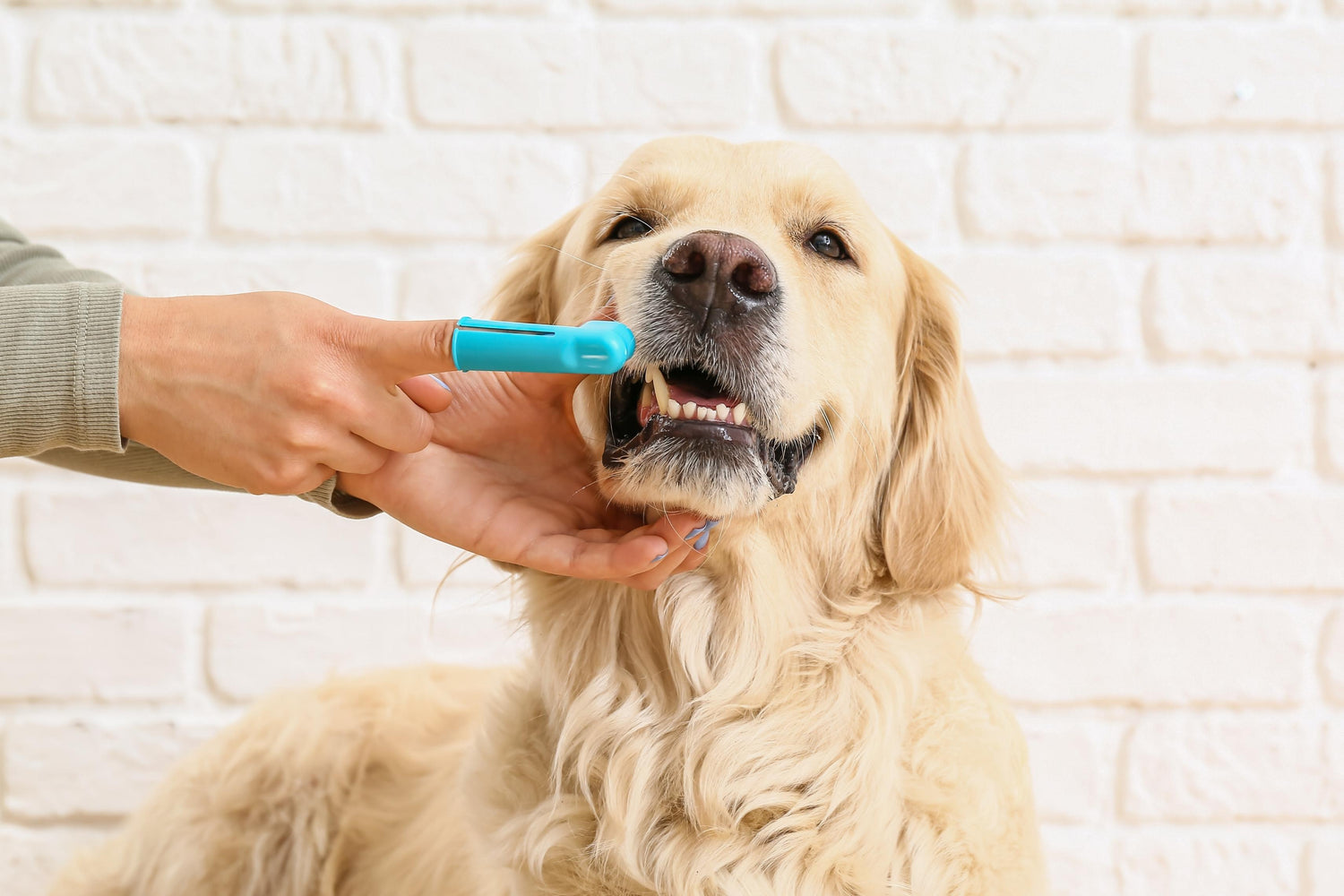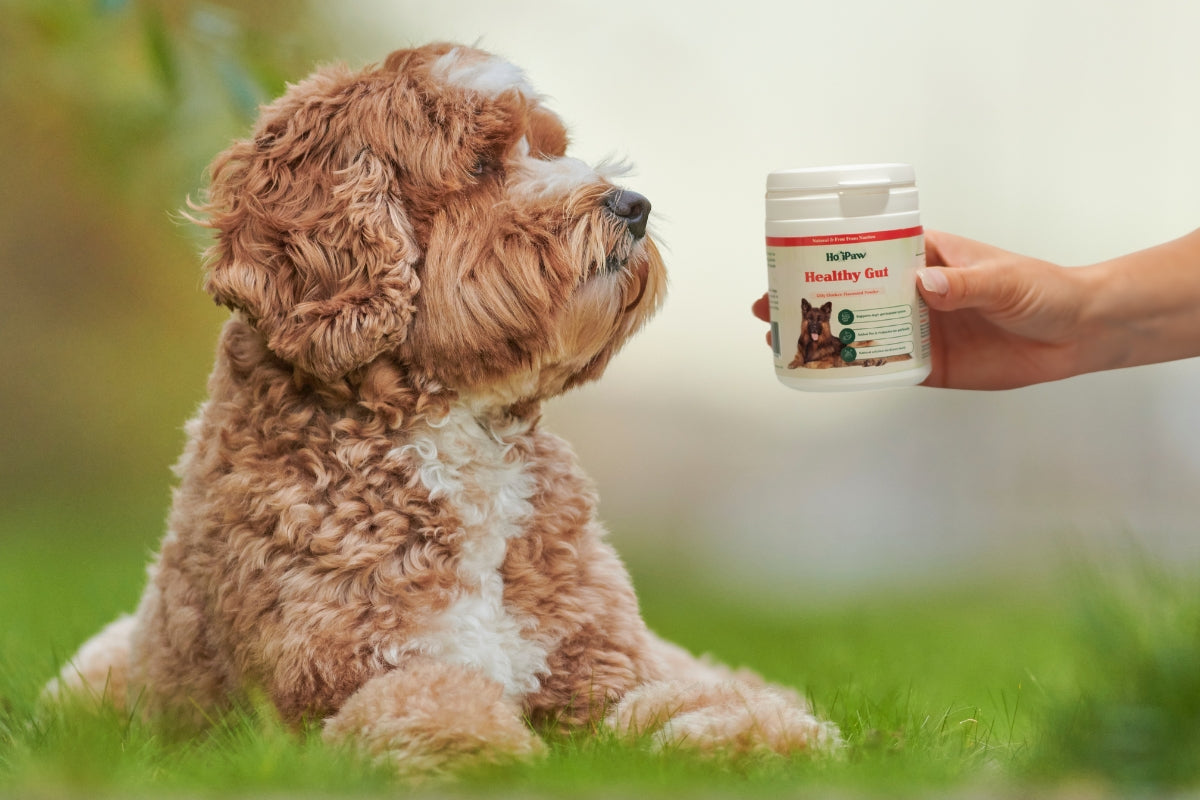When it comes to our pups, we go above and beyond to ensure their health and happiness. Yet one aspect of their health is often overlooked: dental hygiene.
Why does dog dental health matter?
Dental health plays a crucial role in your dog's overall well-being. Here’s why it deserves your attention:
Prevent dental disease
Just like humans, dogs can suffer from dental diseases, such as periodontal disease, gingivitis and tooth decay. Many dogs start showing signs of periodontal disease when they're only three years old, which can lead to severe issues such as infections, tooth loss and even heart disease.
Improve quality of life
Dental problems cause discomfort, difficulty eating and even behavioural issues. A healthy mouth contributes to a happier and more comfortable dog.
Longer lifespan
Maintaining good dental hygiene leads to a longer, healthier life for your dog. Dental issues are sometimes a precursor to more serious health problems, so addressing them early can make a significant difference.
Tips for healthy dog teeth
Regular dental check-ups
Schedule regular check-ups with your Vet to monitor your dog's dental health. They can catch any issues early and provide professional cleanings if necessary.
Clean your dog's teeth regularly
Brushing your dog’s teeth is the most effective way to prevent plaque build-up and stop tartar before it becomes a problem. The earlier you start, the easier it is to make it part of your dog’s routine.
Always use dog toothpaste, as human toothpaste often contains harmful ingredients like fluoride or xylitol. Pro tip: Flavoured toothpastes can make brushing a more enjoyable experience for your pup.
If your dog resists the toothbrush, don’t worry - HoliPaw Clean Teeth rubbing paste provides a simple, effective alternative. Just apply and rub it on your dog’s teeth to keep their mouth fresh, clean and healthy without the struggle.
Dental treats
Some treats are specifically designed to support your dog's dental health by helping remove plaque and clean their mouth. Look for treats containing:
- Peppermint to neutralise bad breath
- Activated Charcoal to maintain white teeth
- Sodium Hexametaphosphate to reduce tartar build-up
Dog food for dental care
Maintaining clean teeth is easier when it’s part of your dog’s daily routine. Impact+ for Dental Care is a grain-free recipe formulated to support oral health in adult dogs. Made with freshly prepared Hydrolysed Turkey & Salmon for gentle digestion, it’s enriched with advanced Plaque Defence™ ingredients that help reduce tartar, freshen your dog's breath and keep gums healthy.
Benefits of Impact+ Hydrolysed Dog Food for Dental Care:
- Plaque & Tartar Control: Sodium Hexametaphosphate, Seaweed and Cranberry prevent plaque formation and remove existing plaque and tartar build-up.
- Reduced Bad Breath: Peppermint, Prebiotics and Green Tea promote a cleaner mouth and fresher breath.
- Healthy Gums: Collagen Peptides help soothe inflammation and support gum healing.
- Gentle & Hypoallergenic: Hydrolysed Turkey and Salmon provide easy digestion while reducing the risk of allergic reactions.
Pro Tip: Avoid feeding your dog too many sugary or starchy treats, a balanced diet supports better overall dental health.
Water additives
There are water additives available that can help reduce plaque and bacteria in your dog's mouth. Check with your Vet to see if these are appropriate for your pooch.
Monitor for signs of dental problems
Keep an eye out for signs of dental issues, such as bad breath, bleeding gums, drooling or reluctance to eat. If you notice any of these, consult your Vet promptly.




Leave a comment
This site is protected by hCaptcha and the hCaptcha Privacy Policy and Terms of Service apply.